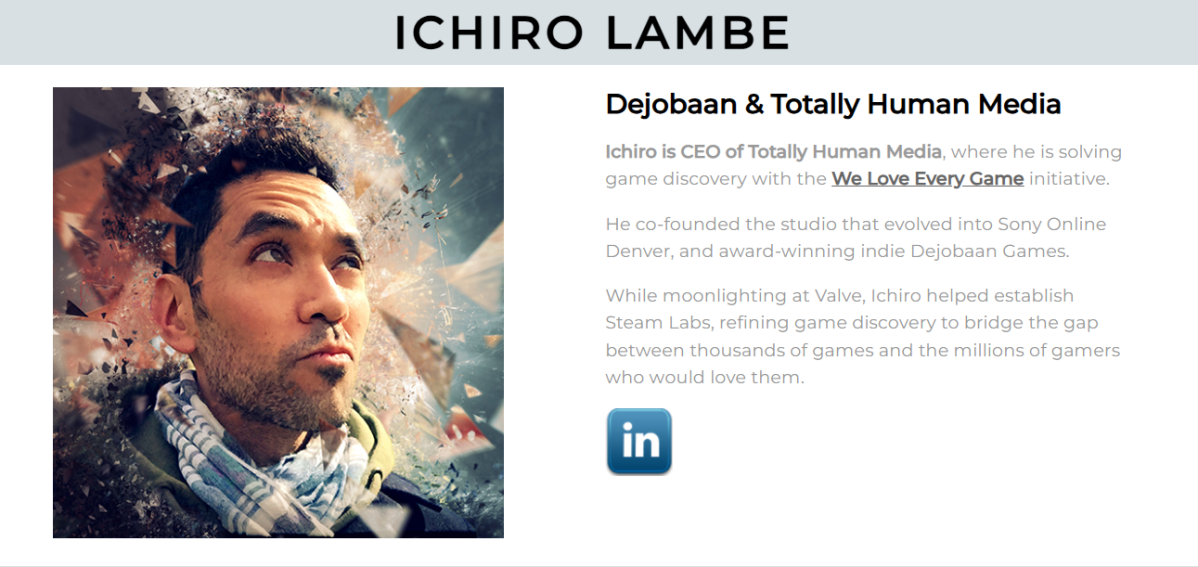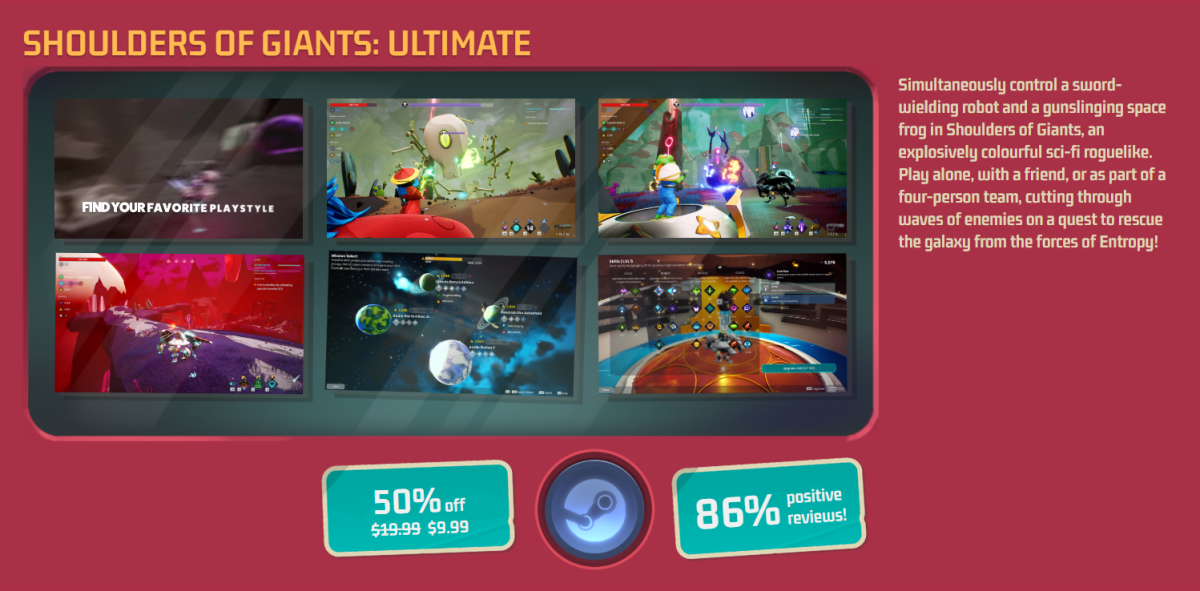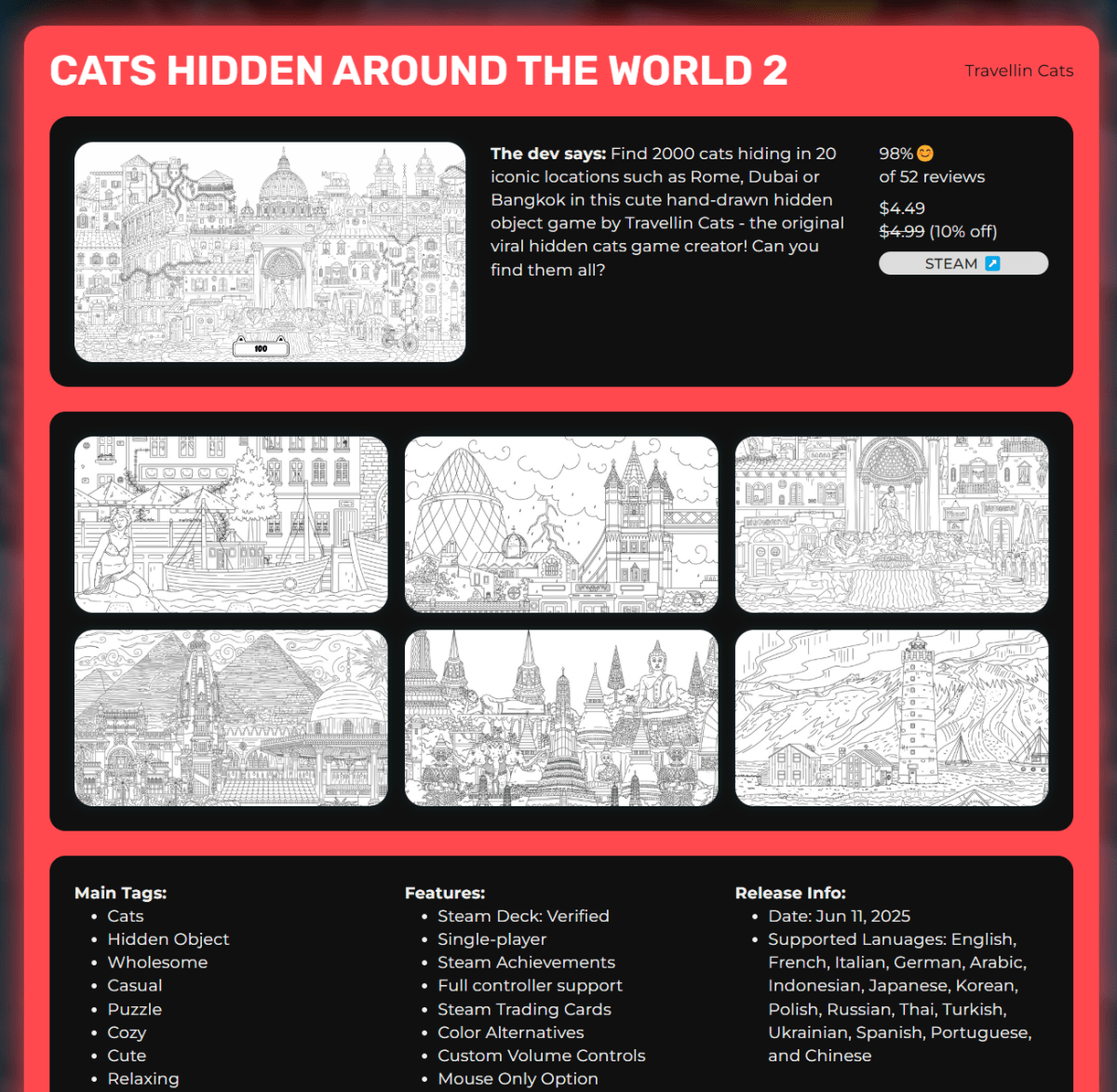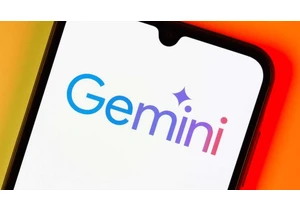According to SteamDB, there were 18,838 new games released in 2024, an increase of approximately a third over the year before. With the growth of digital distribution, other game stores, consoles, and mobile are seeing the same explosive growth. You probably heard about Balatro and Dragon’s Dogma 2, but what about a mashup of old-school Zelda and a shoot-em-up?
It’s becoming impossible to parse all but the biggest triple-A releases (many of which aren’t exactly stellar) and the most virulent of social media hits. How do you search and find new games in a landscape where you simply can’t hope to see everything? That’s the problem that We Love Every Game (or We HEART Every Game as its logo goes) aims to solve.
A product of a teeny-tiny Boston startup called Totally Human Media, I fell in love with the tool during a recent Steam sale and wrote it up here on PCWorld. The company reached out to me to ask if I wanted to go deeper, and I couldn’t say “yes” fast enough. I wanted to find out the root problems of current game discoverability on the PC and other platforms, and what we as gamers can do about it, how developers can get their games out, and all that jazz.
Totally Human Media CEO Ichiro Lambe and head of marketing Matt Martindale joined me over a video call to chat.

Ichiro Lambre
Michael Crider, PCWorld: Ichiro, on the website for Totally Human Media, it says that you have a background in game development. Can you tell me about that?
Ichiro Lambre: So I’ve been in the industry for about thirty years. I founded a couple of companies, one became Sony Online [Entertainment] Denver, the next was an indie studio called Dejobaan Games. We created award-winning stuff with a Guinness World Record for breaking Steam…and over the years I’ve consulted for a number of companies, and helped launch umpteen games. And in 2018 Valve approached me to help them with games discovery.
So I co-founded something called Steam Labs over at Valve. I was an external consultant, random moonlighting dude, and for a few years we just sort of did a bunch of stuff around games discovery. And early last year I closed down my indie studio, because it’s fashionable, right? And I founded Totally Human Media and We Love Every Game to solve the discovery problem.
PCWorld: And was it specifically your experience with that indie studio and over many years that told you, “This is a problem that we need to address?”
Lambre: Oh, absolutely. So I’ve been doing discovery-related stuff for about ten years. I had a Twitter bot back in the day called Microtrailers where every time a Steam game launched, it would cut a six-second micro-trailer and put that on Twitter. May Twitter rest in peace!
I knew the Valve/Steam team over the years and that’s part of why they brought me on to help them. But bluntly, the only reason why I had to close my indie studio was because the games launched there were generally, you know, thumbs up, but they sank without a trace.
Guards II: Chaos in Hell is a turn-based tactics game where you swap heroes to attack, heal, and use abilities, featuring unique stances, deep strategy, and diverse upgrade paths.🏆 99% of 79 reviews▶️ See it on Steam ($14.39)#steam #pcgaming #gaming #steamgame
— We ❤ Every Game (@weloveeverygame.bsky.social) 2025-06-23T13:12:15.744198Z
PCWorld: So for We Love Every Game, what is your standard for what constitutes a good game, one that the tool can recommend, if you’re prepared to share that? From what I can tell it seems to require at least an 80 percent or higher positive review on Steam. Can you share any other parameters, green flags or red flags that developers should be aiming for?
Lambre: We’re trying a really simple heuristic right now, which is 80 percent are positive player reviews or higher, and I think it’s 30 reviews or more. And for something like the Steam Summer Sale, obviously a game has to be greater than $0 or it’s not really on sale. However, I think our greater mission is to make sure that every gamer finds their next favorite game, and also that every game is able to find an audience of people who would want it.
So there are lots of games out there that don’t fit a concrete criterion, but it has many people who love it. I don’t like it when recommendation engines try to be personalized, because algorithms get it wrong, but we don’t necessarily want a review score to stand in the way of [a game] finding you.
Matt Martindale: I think in the future we’ll be trying to find ways that people can say, you know, I like certain genres. I’m an RTS kid myself. But there are things within that genre, what is that thing that they enjoy about it, and how do we then link games together? For example, my classic line [to demonstrate this] is, like, Pokemon and Elden Ring are very similar. They have difficulty gates, you’ve got to train up and beat that.
So how do you serve that as a need? Unless there’s someone who’s written an article or a video on YouTube saying, “Is it that thing from that game,” there’s no way. And there’s so many misconnections for gamers, I find. Like, how many Fortnite players have the perfect game that they’ve just not migrated across to? So that’s the foundation, how to help people find those little connections and move across.
For example, I’m fairly certain that base building, which is what I enjoy in real-time strategies, is why I enjoy Factorio and Satisfactory. Platforms don’t really have the space or the time to be building that kind of interconnection.

We Love Every Game
PCWorld: Your “About” page on We Heart Every Game says you want to figure out a way to cover “every single bloody video game on the web” in videos, newsletters, and so forth. Tell me what that looks like for you.
Lambre: The way that people find and buy games typically follows the sales funnel model, where you have to first become aware of a game. I see it somewhere. Then they are in the interest phase where they learn about a game. It’s like your favorite journalist writes about it, “Ah, yes, I trust Michael.” And then you get to the bottom of the sales funnel, can I buy it, is it the right price?
I think the bottom of the funnel is solved. Steam, Nintendo eShop, you know, you can buy a game, you can play it, that’s no problem, perfect. The middle of the funnel, is hurting, but there’s a lot of good content. Once you know about a game, you can learn about it…what I think is missing for most games is that initial awareness. So if we can say, “Hey, here are games that, based on your Steam library or these categories [you selected], and you signed up for a newsletter, we can tell you sort of very lightly what might be interesting to you. Why might it be interesting. And here’s how you can find out about it more in a more substantial fashion.
PCWorld: I’m gonna be honest, the task that you’ve set for yourself seems overwhelming, dare I say impossible. How do you scale that up to, say, 20 or 30,000 new games to hit Steam in a year?
Lambre: So automation has gotten better over the years, and it’s gotten worse. So we have like generative AI can spit out a bunch of shit about everything. But I think that we can also use these tools to sort of summarize what’s interesting or relevant to you about a game. If we go to ChatGPT and we’re just like, look, encapsulate this game in a few sentences and then I’ll link to the Steam store page, or we’ll try to find articles and in-depth streams, so forth and so on, we can automate that at scale and use that existing information about the games, what’s largely out there already.
PCWorld: So you would trust generative AI to summarize human-generated content about games, and then present that to people as a way of informing them?
Lambre: I don’t trust it at all! I think it does a highly variable job of accuracy. Do I want glue on my pizza? No. However, I do think it’s currently good enough so that it can sort of tease you, and say, “Look, this game might be good for you. Here are a few reasons why.”
Martindale: We’re at the top of that [sales] funnel, we’re using it as a way to help people find little snippets of that game…we’re building sort of framework templates for the content that goes out there, so that there’s a structure in what we produce using it. If it makes a mistake, it’s more likely something we’ve done wrong with the template, not something in [the content]. These are smaller bite-sized bits of content, we’re not trying to eat an entire Wikipedia article and spit that out…So it’s always quite focused, and not like trying to matter too many things into a very small box that that when AI is going to trip over and, yeah, start inventing its own realities.
Lambre: What we have upcoming is, we try to convey what’s relevant to you about a game in multiple ways. So for instance, if you were looking at it [like], I play Deep Rock Galactic. How are these games like Deep Rock Galactic? And it might be able to pick out, like, it’s for four player, Co Op, PvE, right?
PCWorld: So if you’re building a tool from the ground up, based on all these goals, would you say that you are hoping to expose all of the buttons and all the levers that you can to a user to say, “This is why we’re making these recommendations. Please tweak these to your to your liking to make it better”?
Lambre: It’s sort of scary to give people all of the controls, because I think we can overwhelm them. But wouldn’t it be really neat if you you’re a casual user, and you can just say, “Algorithm, I’m going to surf with whatever you recommend.” Or maybe you’re a little bit more of a mid-core gamer, and you go in and you pull out genres and pull in genres. Or maybe you’re an incredible prosumer, and you can go in and say, “Look, I explicitly want only games that are hidden object, and cats,” tag, and and do that.

We Love Every Game
PCWorld: Do you think you can build that for all of those disparate users?
Lambre: The tech behind that part is pretty straightforward. Like you can go to SteamDB right now, and you can just say, it must have a hidden object tag and a cat tag. I think the tricky thing will be to figure out how to co-construct this with gamers, so as not to overwhelm them. We will tell you in a few months whether that works or not.
PCWorld: User interface is not easy.
Martindale: On user interface, like, TikTok. Have they got the best option for this? Or do we need something where it’s a bit more speedy and quicker to get through things? We’re still probably an early stage to share anything, but we are working on a single view where you would go as if you were to scroll, say, a Reddit or Twitter feed, and you can just work your way through in one view.
PCWorld: On the Totally Human page, you said you want to do something similar for all entertainment media. Yes. Do you think that’s possible?
Lambre: I think we’re doing it…on a Friday night when I’m sort of relaxing with my wife and we put the kids into their beds. Kind of want to be let’s just watch something and to enjoy it like right? And so I have a need for we have the need for just being able to scroll through a bunch of stuff and say, “ah, that let’s try it” without having to go through the Netflix interface and to play the first 15 minutes of an episode.
The way we’re approaching it, is to give users that top of funnel stuff where it’s just like you walk into a farmer’s market, and you see all these wonderful things, and you can just taste them really, really quickly. And we give you that sort of literally, you know, this one-second hint of what Veronica Mars is all about. And then you can make an informed decision as to whether you want to investigate that.
So, you know, can we do it? I don’t know. Talk to me in 2027 [when we’re] expanding to books, music, movies and television. But the how is, we’re learning a bunch of lessons from games.
PCWorld: This is a very broad question, and I would understand if you would just decline it. Can this be profitable? And is that a goal for you?
Lambre: The answer is that we are investor-backed, and therefore it has to be. I think there are a number of platforms that demonstrate how you can do something like that. Any consumer-facing platform has the ability to monetize, and hopefully in a not-enshittified way.
PCWorld: That’s very gratifying to hear!
Lambre: Oh my gosh. It breaks my heart every time something wonderful that I use turns into this weird dystopian thing.
Mar
Войдите, чтобы добавить комментарий
Другие сообщения в этой группе

The World Wide Web Consortium (W3C) recently released an update to th

The 2025 school year may be ending, but students who return in the fa

If you’re having trouble getting your Windows PC to connect to a NAS,

If you’re always on the go and need a reliable laptop with a gorgeous


It’s funny how as most electronics have become smaller yet more power

Most of the long and thin smart floor lamps we’ve tried are all about
